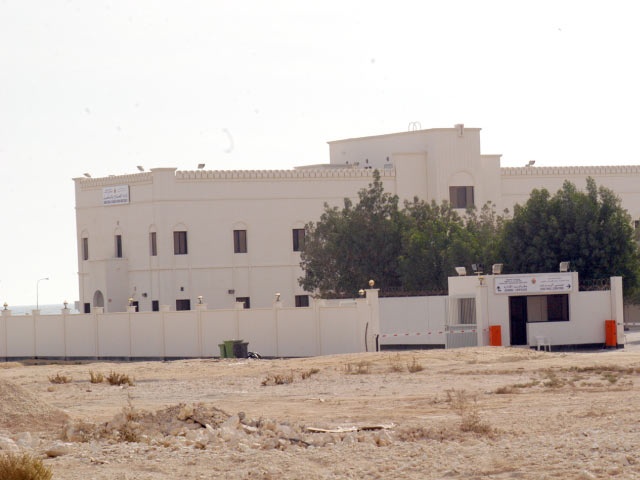By Benjamin Weiner, Human Rights First
The main penitentiary in Bahrain, Jaw Prison, is 34 percent over capacity, according to a September 2013 report by an Ombudsman’s office within the Bahraini Ministry of the Interior. This overcrowding is a recipe for destabilization that could spread beyond the prison’s walls on this small island nation, home to the U.S. Fifth Fleet.
Many of the problems in Jaw stem from the growing population of prisoners who shouldn’t be there–political prisoners jailed for expressing their views peacefully. The Ombudsman’s report did not address the reasons for the increased number of prisoners, but instead concentrated on conditions. It made several notable findings and recommendations.
At the time of the report, Jaw Prison held 1,608 prisoners, well beyond its capacity of 1,201. Some cells lack toilets, many are overcrowded, and some are dirty. Additionally, medical facilities are insufficiently clean, and prisoners could not access health care quickly. Staff have no training in first aid.
Maryam Abu Deeb’s father Mahdi is a prisoner in Jaw Prison, serving a five year sentence for criticism of the government. She told Human Rights First that “the prison can’t cope with the number of people in it—the clinic facilities are really bad and the health care for prisoners is terrible.”
The daughter of a another prominent dissenter jailed in Jaw Prison informed Human Rights First that it “lacks minimum standards—prisoners have to buy bottled water from their own pockets. There have been several hunger strikes and protests at conditions in recent weeks—there’s also a lack of hot water for washing in the winter and many prisoners have health problems that aren’t properly addressed, including dental problems.”
The Ombudsman reported weak training programs for staff on maintaining order, as well as deficiencies in documentation of the use of force in individual prisoners’ records. Further, Jaw Prison does not comply with international standards requiring cameras in all prison buildings, corridors, and wards. The prison also lacks home schooling and other rehabilitation programs for prisoners.
The Ministry of the Interior’s Ombudsman recommended that several steps be taken, including reducing overcrowding in cells, installing surveillance cameras, and enabling diabetic patients to receive insulin injections.
Bahrain’s government has shown itself ready to identify human rights problems in the past, only to ignore them. Three months after its own report revealing poor conditions in Jaw Prison, much remains to be fixed.

